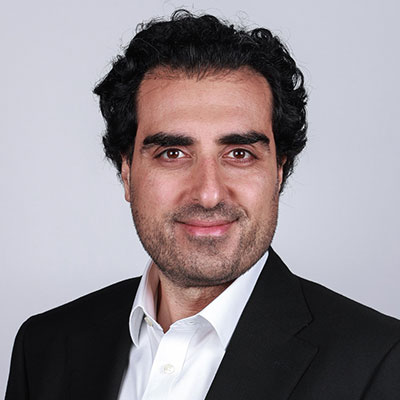Mustafa Alrawi: Who might dominate next era of technology?

Christine Lagarde, President of the European Central Bank, warned this week that we are witnessing a fragmentation of the global economy into competing blocs as a result of the rivalry between the US and China.
The result would be more instability and geopolitical tension “with each bloc trying to pull as much of the rest of the world closer to its respective strategic interests and shared values”, she said.
Beyond the growing confrontation cited by Ms Lagarde between powers in the West and East over Taiwan or Ukraine, the energy transition and rising rates of inflation, there will also be cultural and commercial competition over who will dominate the next era of technology. It increasingly feels like the beginning of the end of the era of western dominance that began in the 1990s with the widespread adoption of the World Wide Web. The arenas of generative artificial intelligence and e-commerce are becoming more democratic in terms of who controls them and has access to the bulk of their billions of users.
Ultimately, the question is — can a middle power emerge to contest this space along with the established leaders, the US and China?
The public release of ChatGPT has helped give the AI race new momentum and China’s is following suit with its own option. In the UAE, there have been a number of institutions and companies also pushing forward with homegrown AI-driven solutions and software.
:quality(70)/cloudfront-eu-central-1.images.arcpublishing.com/thenational/KM3STEY3LHSZRK7TKLMWDCW7ZA.jpg)
More broadly, there has been a shift in recent years for e-commerce that reflects the changing needs of users. Amazon is already showing sports content, Saudi e-commerce platform Noon is to livestream IPL cricket, and Twitter, under Elon Musk, has tied up with trading platform eToro . Mr Musk will also pursue his own generative AI capabilities.
Thus the direction of travel for e-commerce is towards the end goal of becoming a one-stop-shop for all consumption online — and Etisalat confirmed this trend by buying a majority stake in ride-hailing service Careem’s own super-app for $400 million. Gartner expects that by 2027, more than 50 per cent of the global population will be daily active users of multiple super-apps.
When everyone has content then content is no longer king. What will win the game then? User experience and — more importantly — utility.
China’s WeChat pioneered the super-app concept more than a decade ago, evolving from a social network to becoming an integral part of daily life — at home and at work — mixing a selection of seemingly unrelated services in one place.
Shopping, banking, working on documents, seeking out medical services and booking travel on your mobile device has become second nature. Why wouldn’t it be more convenient to do all of this on one platform? In the West, this flies in the face of a century of consumerist behaviour, not to mention anti-monopolistic sentiment. People like to have multiple options.
In other parts of the world, these feelings are not as strong as the desire for convenience.
It can come down to trust levels. Giving over your data or your custom to any company already feels like too much of risk, let alone all your habits being provided to one place. Yet we do it seamlessly with Apple, Google and others. The friction can come from perception.
This is where the culture and social wars come into play. The US has loudly shouted about China’s technological threat. TikTok and Huawei have been singled out. Yet apps in China are the largest in the world when it comes to mobile transactions.
Their success is measured more in terms of how many times a user visits per day while in the West it is typically about the overall number. The former is better representative of utility.
Every online brand will need to adopt this objective to keep growing. The most powerful and effective AI will win. If that comes from China or possibly the UAE, that will of course give the apps from that part of the world an edge. OpenAI putting ChatGPT out there for everyone to use is also a big boost for US hegemony, even if in the short to medium term it means some level of decline of giants like Google.
Between the opposite approaches of East and West there is room for a hybrid, one that recognises American innovation and speed, and mixes these strengths with the efficiency and effectiveness of the Chinese model to create an Arab super-app, that combined with AI, could supersede both.
The Gulf region and in particular the UAE, is both geographically perfectly placed and commercially nimble and philosophically open enough to chart this path for its technology companies through targeted and specific regulatory and policy-led initiatives.
If enough of them attempt to seize this opportunity then it may not be very long before a third bloc emerges to balance out some of the friction around the world.
Mustafa is an assistant editor in chief at The National, and an accomplished journalist and broadcaster, with over 18-years’ experience working in the UK, the UAE and the wider Middle East
Want to chase the pulse of North Africa?
Subscribe to receive our FREE weekly PDF magazine












